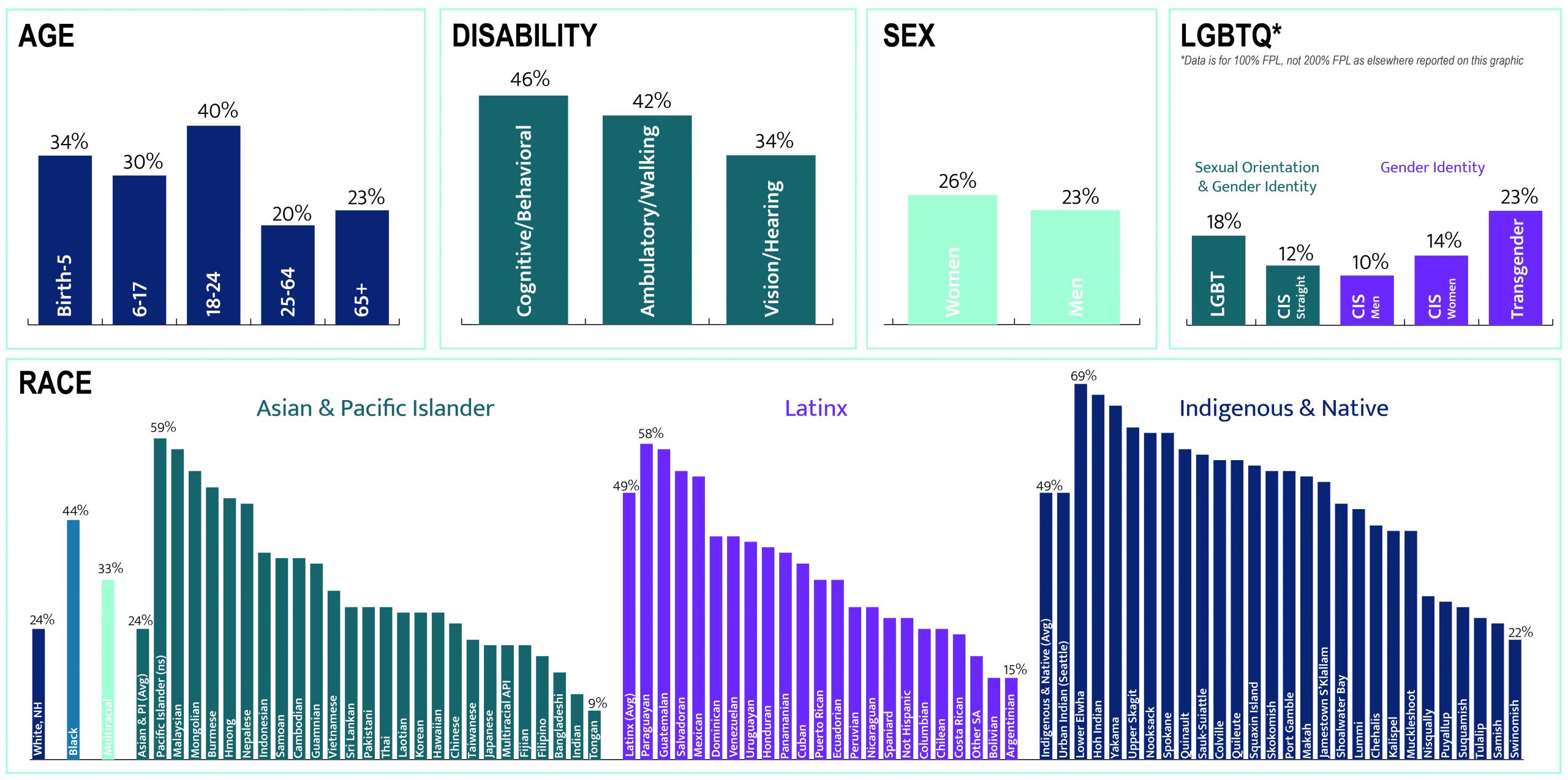This entry was written by Marianne K. Ozmun-Wells and comes courtesy of the Rainbow Alliance & Inclusion Network (RAIN), Washington state’s LGBTQ+ business resource group.
Over the past 20 years or so, whenever issues of advancing equity have arisen, people in sexual orientation and gender identity minority (SGM) groups are often an afterthought or an add on.
We have talked for years about disproportionate involvement in systems and disparity in outcomes for women, people of color, and those with disabilities, but when it comes to LGBTQ+ communities, it’s been a bit of a backward glance — like, “Oh yeah, and don’t forget the gays.”
Those of us who identify as anything other than strictly cisgender and/or heterosexual know that we do not always have access to adequate housing or food security. Employment opportunities and advancements have often eluded us. The inability to get spousal benefits prior to 2015 left us without insurance and inheritance. The world outside of our communities has failed to consider those inequities in part because we have not historically been counted.
On January 14, 2021, a coalition of Washington state private and public agencies, spearheaded by a steering committee of people with lived experience in poverty, released their 10-year plan to dismantle poverty in our state. That plan, “Blueprint for a Just & Equitable Future,” calls out the inequities that contribute to poverty.
“Race and social justice at the center. The experience of poverty is not shared equally. Indigenous, Black, and Brown Washingtonians, women, families with young children, youth, rural residents, immigrants and refugees, seniors, LGBTQIA+, and people with disabilities have poverty rates above the state average. Reducing poverty in a way that achieves equity for each of these groups is essential for Washington state to maximize the well-being of its residents and fully realize the talent, potential, and contributions they have to offer.”
LGBTQIA+ individuals, like so many other people with lived identities in historically marginalized groups, do not have access to opportunity and prosperity in the same way that cisgender and heterosexual people do. The recognition of this truth is both novel and necessary.
For a population that has been, until very recently, disregarded in inquiry, data collection, and analysis, to have data display of LGBTQIA+ Washingtonians juxtaposed to displays of age, race, sex, and disability, shows increased visibility as a group.

The 10-year Plan has a series of strategies, recommendations, and specific actions toward creating a more just and equitable Washington. The decision to include members of the LGBTQIA+ community in its formation was a step towards the equity they deserve.
*****
Marianne K. Ozmun-Wells is the Equity, Diversity, & Inclusion Manager for the DSHS Economic Services Administration.

